- Home
- Vince Flynn
Mitch Rapp 13 - The Last Man Page 2
Mitch Rapp 13 - The Last Man Read online
Page 2
“How about those assholes from the ISI?” Hubbard asked. Rapp had considered the less-than-loyal members of the Pakistani Intelligence Service. They would be on the list as well as others. “Don’t forget the Iranians, the Russians, and the Chinese.” And there was one other possibility that Rapp wasn’t quite prepared to mention. “My money’s on the ISI. This is just the kind of bullshit they’d pull.”
A thought occurred to Rapp. “Where’s the dog? That big fricken’ Rottweiler that never left Rick’s side?”
“Ajax . . . he died a month ago.”
Rapp was surprised by the news. “What was wrong with him?”
“Don’t know. Rick was pretty bummed out, though. Dog got sick, he took him to the vet and had to put him down. I think Rick said it was cancer or something like that.”
One of Rapp’s team members came down the stairs with a disturbed look on his face. The man had blond hair and blue eyes and was pushing fifty. “Not good,” was all he had to say.
Rapp looked at Scott Coleman and said, “Please tell me you’re talking about something other than the safe. Tell me the safe is untouched and all the cash, drives, and laptop are safely tucked inside.”
Coleman shook his head. “All gone. Completely cleaned out.”
Even though Rapp had expected it, he had held out some hope that he could give his boss some good news. “Shit, I need to call Irene and let her know.” Rapp reached for his phone, but stopped upon hearing a commotion at the front door.
Chapter 2
Abdul Siraj Zahir admired himself in the mirror. At forty-eight he was an old man in his country. Even among the common people it was difficult to make it to manhood. In Zahir’s line of work the challenge was much greater. He was a warrior, like his father and his father before him. His father and all three of his older brothers were dead. His father and the two oldest brothers had been killed by the Soviets and the third one had died at the hands of the Northern Alliance. Zahir had learned from their mistakes. Afghanistan was a brutal country where the only person you could really trust was someone from your own village. Beyond that, loyalties were an ever-shifting, complicated game.
Zahir had learned that to stay alive he had to be brutal and vigilant. He knew that some described him as sadistic and paranoid, and he wore that as a badge of honor—the more people who feared him the better. In Afghanistan, fear ruled. If you couldn’t get men to fear you, you became a target. Zahir didn’t want his life to end the way it had for his father and brothers, so he stoked the fear. It wasn’t always easy, but had found that he was good at it.
Zahir pulled down on his gray uniform blouse, snapped his fingers, and then held out his arms. His aide rushed forward with Zahir’s shiny black leather service belt. He buckled it around his boss’s ample waist, made sure it was straight, and then stepped out of the way so Zahir could admire himself in the mirror. Zahir smiled at his reflection. His weapon was a still-unfired .40 caliber Smith & Wesson. The fact that Americans had given it to him for free made ownership all that much more delicious. He’d spent most of the last decade killing Americans, and now he was on their payroll.
Zahir noticed something wrong with his beard and moved closer to the mirror. His irritation was directed at a patch of gray that he had missed. He grabbed a bottle of black dye from his desk and inserted a small brush. After a few applications the gray was gone. Zahir smiled at his fine-looking beard and placed his hands on his hips. He looked good in his uniform. It was a little tight around the waist, but in Afghanistan his expanding middle section was a sign that he was a prosperous man.
Afghanistan was a unique place. It was like a petri dish for the survival of the fittest. Historically it had always been a harsh country; hot summers, cold winters, and rugged geography had shaped a breed of extremely tough people. For the last three decades a state of near-constant war had only heightened the selection process. Being physically strong was no longer enough. One had to be adept at reading the ever-shifting alliances that had shaped and reshaped the power structure of the isolated country. The Soviets had to be appeased and then the Americans and their Pakistani partners, who sponsored the crazed Wahhabi fighters from across the Persian Gulf, who in turn led to the Taliban and their enemies the Northern Alliance and a long civil war. Then the Americans and their coalition showed up and swept the Taliban from power in a matter of months.
Abdul Siraj Zahir had been able to look into the future on that day more than a decade ago and understand that the Taliban would be back. American air power and their advanced weaponry had given him doubts along the way, but Zahir knew the Afghan people, and more important, the devout Muslims who represented the base of the Taliban. They would die to the last man before they let these godless people beat them. Zahir also knew that the Americans were too self-conscious to hunt the Taliban down like the dogs that they were and exterminate them.
So Zahir played them all against each other and never forgot the fates of his father and brothers. He held on to his little enclave southeast of Jalalabad and changed sides as many times as he needed to to survive. Zahir neither loved nor hated his country. He didn’t think in those terms. He lived in this particular part of the world, like most of its people, because he had been born here. He considered himself to be an above-average intelligent person with a very good understanding of what motivated people and, more important, what they feared.
Despite his ability to sense the shift, winds of power, the most recent gigantic twist was something that even he had been unable to predict. After he had killed countless Americans, and taken their money, the fools had come to him with a job offer—a legitimate job offer. Not simply a bag of cash as they had done in the past for certain information. They wanted him to become commander of the local police force. He thought it was a trap, of course, but then he learned that other lions like himself had been offered and taken similar positions in the Afghan Police. It was a new push the Americans were calling the reintegration program.
He had been on the job for just six weeks, and he was already lining his pockets with bribes from local businessmen. The Taliban was a concern, of course. They would after all eventually work their way back into power, but not for a few more years, and in the meantime, Zahir would play both sides against each other. He would work for the Americans, take their money, and keep the Taliban informed of what they needed to know.
As always, the most important thing was to stay one step ahead of seen and unseen enemies. Zahir had long ago surrounded himself with fiercely loyal people. There wasn’t a man in his inner circle whom he had known for fewer than ten years, and they were all from his village. They were of his tribe, and in return for their loyalty he protected their families. Zahir never spent more than two nights in the same place, and even with his newfound legitimacy he continued his old ways. Part of the reason was that he had four wives. They all needed his attention, but it was beyond that. The axiom was extremely simple: They couldn’t kill him if they couldn’t find him. Nights were always the most dangerous. That was when the American killers hunted. They used their optics advantage to harass and assassinate his countrymen.
For many years now Zahir had avoided sleeping at night. He always made sure he was awake from midnight until one hour before sunrise. That was the preferred time that the American dogs liked to attack, so he stayed awake and on the move. He would then sleep in the mornings and conduct business in the afternoons and evenings. This morning, however, was different. After only a few hours of sleep, Pamir, one of his most trusted men, had awoken him with a startling piece of news. There was a rumor sweeping through the back alleys of Jalalabad that a notorious American had been snatched from his fortress. Mr. Rickman was a very important man who had made many of Zahir’s countrymen extremely wealthy. Unfortunately, Mr. Rickman had also spent a great deal of his time and money trying to kill Zahir. There had been many close calls, but Zahir had always managed to stay one step ahead of him. Now that Zahir was in a position to finally receive some of the
cash that the American was so famous for handing out, someone had grabbed him.
Zahir had been silently berating himself all morning for not coming up with the plan first. With his newfound influence it was just the type of operation he could have pulled off. Having been beaten to the prize, however, he would now be forced to adapt. If the last thirty years had taught him anything, it was that out of chaos came great opportunity, especially to those who were bold and ruthless.
In the reflection in the mirror, Zahir saw Pamir enter. The man did not wear the uniform of the Afghan Local Police. He had always been more suited to lurking in the shadows. “What have you learned?”
Pamir inclined his head slightly and said, “More Americans are at the house. I was told they flew in from Kandahar this morning and were driven to the house by the tall American.”
“Hubbard?”
“Yes.”
Zahir snorted. The CIA’s local man was no match for him. It would be easy to manipulate him. “Was Mr. Sickles with them?”
“No.”
This surprised Zahir. He had found it very easy to work with Sickles. It was easy to pick up on the fact that Rickman and Sickles did not get along. Sickles had told him to stay well clear of Rickman. Had told him that the man was someone he had no control over, but still Sickles was the CIA’s top man in Kandahar. “These new Americans . . . any idea who they are?”
“No.” Pamir shook his head. “Only that there were six of them.”
“Security?”
“Three Humvees . . . one normal, one with a 50-caliber turret, and another with a grenade turret.”
“And men?”
“Eight total. They control each end of the street.”
Zahir snorted again. They would never stop his police vehicles. He would push right past them. Turning to Rashid, his lieutenant, he asked, “Are the men ready?”
“Yes, sir.”
“Good. Have everyone get in the vehicles. I want to make a show of force.”
Pamir asked, “And what would you like me to do?”
“Keep looking for him and report to me the second you learn anything useful.”
Pamir gave a slight bow and left. In his outer office, Zahir was happy see more than a dozen men strapping on their new bulletproof vests and checking their weapons—all courtesy of the United States of America. What a bunch of fools, he thought to himself. The Americans were going to learn a very hard lesson over the next few months.
Chapter 3
A group of men in Afghan Police uniforms were trying to push their way into the house. Rapp looked on with irritation as a man with an oily black beard berated the CIA bodyguards. The man’s beard was obviously dyed. So much so that he looked like a silent-movie actor playing a pirate. To his right, he heard Hubbard muttering to himself. The only thing Rapp could make out were the words “This is not good.”
“Who is he?” Rapp asked.
“Commander Abdul Siraj Zahir. ALP.” ALP stood for Afghan Local Police.
“What’s his story?”
“Up until six months ago he was an insurgent. More of a crime boss, really. Extorted and kidnapped every village between here and the border, and now with the new reintegration program the geniuses in Kabul have seen fit to put him in charge of the local police.”
The info clicked and Rapp remembered the name. He and his group were responsible for a good number of the roadside bombs in the area. “Was he on Rick’s payroll?”
“They were working on it.” Hubbard motioned to the guards at the door and said, “It’s all right. Let him in.”
With obvious displeasure on his face, Zahir pushed his way past the guards and approached Hubbard, Rapp, and Coleman. He focused his attention on Hubbard and unleashed a torrent of expletives that were meant to punctuate his less-than-stellar view of Hubbard’s abilities and his view in general of Americans.
Rapp took a step back, his dark eyes dissecting this strange man who had so rudely forced his way into the safe house. The bombastic behavior and bluster were not entirely unexpected, but something else was. The fact that Hubbard was letting this piece of human refuse walk all over him. Rapp reminded himself that Hubbard didn’t have the luxury of flying under the radar as he did. He had to report to his boss in Kabul, Darren Sickles, who was more concerned with appearances than results. Sickles had to work side by side with the alphabet soup of U.S. agencies and departments that had come up with the touchy-feely reintegration program. The consensus with the foot soldiers in the Clandestine Service was that Sickles didn’t back them up. Rapp was willing to bet that this unhealthy and unproductive style of cooperation had something to do with Sickles.
When Zahir was done berating Hubbard he turned to Rapp and Coleman and asked, “And who in the hell are these two? Why wasn’t I called about these murders?”
Never one to run from a fight, Rapp squared himself so he was within striking distance of the police officer. Even though the man looked over fifty he was probably in his early forties like Rapp. Unlike Rapp, though, he was pudgy and out of shape. He had a little potbelly and that ridiculous shoe-polish-black beard.
Hubbard started to answer but Rapp reached out and grabbed his arm. Turning his eyes on the Afghani, Rapp said, “Who I am is none of your fucking business. As to why we didn’t call you, that should be obvious. You’re a thug and a piece of shit.”
Zahir’s face flushed with anger and he began to stutter.
Hubbard put up his hands and said. “Commander . . . what he’s trying to say is that it has been a very busy morning and that we were about to call you.”
Rapp kept his eyes on the Zahir but directed his ire at the Jalalabad base chief. “Hub, shut up. That’s not what I was about to say. I was about to tell this little yellow turd that I know exactly who he is, and if he has a half a brain he’ll get the hell out of here before I shoot him.”
“How dare you speak to me in such a way.” Zahir stepped back and began clutching at his big leather holster for his sidearm.
From the right inside fold of his jacket, Rapp produced his Glock 19 in an easy, fluid motion. Zahir was still struggling with the flap on his holster when he looked up to find the square black frame of Rapp’s gun in his face.
“I want you to listen to me,” Rapp said in an easy tone, “and I don’t want you to say a fucking word until I’m done.”
Coleman had already drawn his gun, a big H&K .45 caliber, and maneuvered to cover the other two police officers who were just one step inside the doorway. The safety was already off and he spoke to the officers in Pashto, telling them to keep their hands where he could see them.
Rapp pressed the gun into Zahir’s face just under his nose. “Here’s what you need to know. I’m not some State Department weenie, or some two-star corporate general who thinks the best way to advance my career is to kiss your terrorist ass and get the hell out of this place so someone else can come deal with all you assholes again in twenty years. I’m the guy they call when the shit hits the fan. I’m the one they bring in to get results because they know I don’t play by the rules. I know who you are. I know you’ve killed plenty of GIs and you’ve tormented and kidnapped your fellow citizens for your own profit. You’re a bully and piece of shit and you’re the kind of guy who I actually enjoy killing. Normally I don’t put a lot of thought into the people I shoot, but you fall into a special category. I figure I’d be doing the human race a favor by ending your worthless life. Add to that the fact that I’m in a really bad mood. In fact I’m in such a shitty mood that putting a bullet in your head might be just the thing to make me feel better.”
Rapp studied the man for a moment and then tilted his head toward his right shoulder as if he thought there might be some other way to deal with him. “In the interest of fairness, I suppose I should give you a chance to convince me otherwise.”
Zahir’s chest was heaving as he struggled to get his lungs working. His eyes nervously darted between Hubbard and this crazed man sticking a gun in his face. He�
��d been around plenty of killers and felt he could tell the difference between the pretenders and the men who meant what they said. This man had the look of someone who clearly meant what he said. The only lifeline that came to mind was the person who had negotiated Zahir into leaving behind his lawless ways.
“Mr. Sickles is a good friend of mine,” Zahir sputtered. “He is a very good friend. He is a very important man. He will be very upset when he finds out about this.”
Rapp’s instincts were right. The Kabul station chief had put this goon in a position of power. “Darren Sickles,” Rapp said, with contempt dripping from each word, “is important in his own mind, but that’s about as far as it goes.”
“He is the CIA’s man here in my country!”
“He’s an idiot, and the fact that he put you in a police uniform pretty much proves the point, so you’re going to have to come up with something better than Darren Sickles.”
Zahir licked his dry lips and struggled to find something that would make this American reconsider his vile threat. After an uncomfortably long silence, nothing had come to mind, so Zahir forced a smile on his face and retreated a step. “I think it would be best if I left.”
Rapp grabbed the man’s uniform shirt. “That’s not an option. You either come up with a way to show me you might be useful, or I’m going to blow your brains all over the floor.”
Zahir’s eyes showed hope and he said, “Useful?”
“That’s right.”
“I can be extremely valuable.”

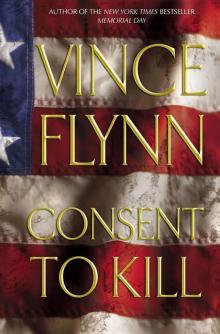 Consent to Kill
Consent to Kill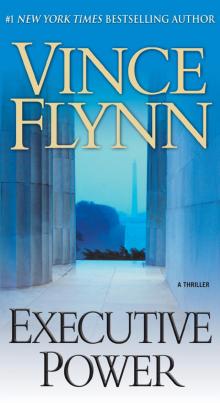 Executive Power
Executive Power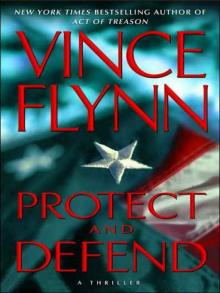 Protect and Defend
Protect and Defend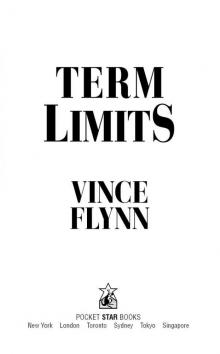 Term Limits
Term Limits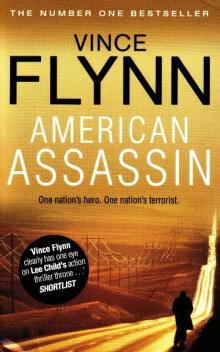 American Assassin
American Assassin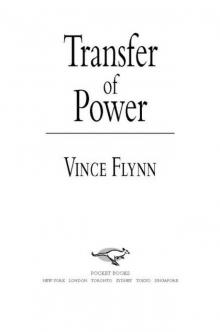 Transfer of Power
Transfer of Power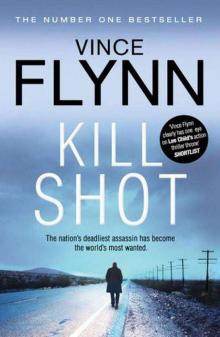 Kill Shot
Kill Shot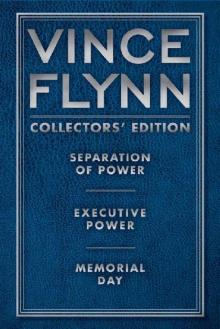 Vince Flynn Collectors' Edition 2
Vince Flynn Collectors' Edition 2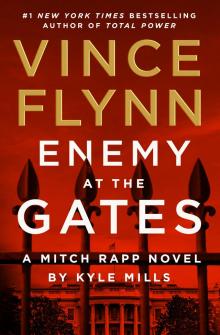 Enemy at the Gates
Enemy at the Gates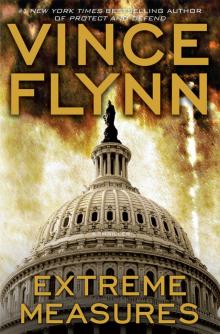 Extreme Measures
Extreme Measures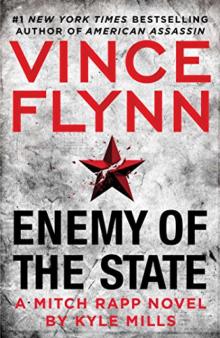 Enemy of the State
Enemy of the State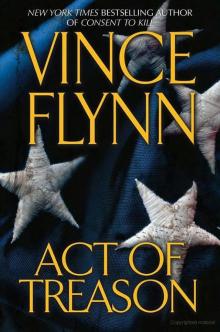 Act of Treason
Act of Treason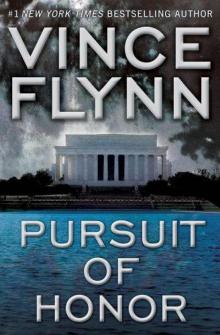 Pursuit of Honor
Pursuit of Honor The Survivor
The Survivor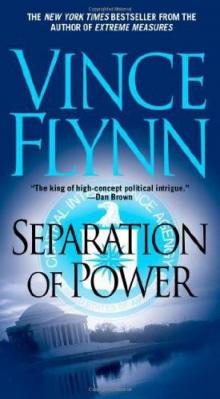 Separation of Power
Separation of Power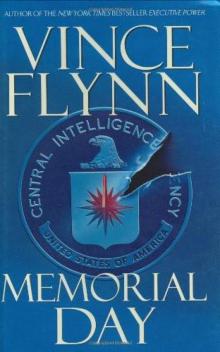 Memorial Day
Memorial Day The Last Man
The Last Man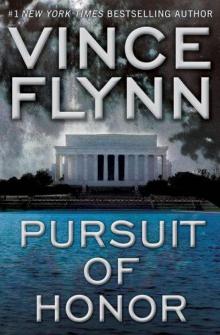 Pursuit of Honor_A Thriller
Pursuit of Honor_A Thriller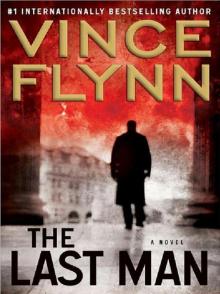 Mitch Rapp 13 - The Last Man
Mitch Rapp 13 - The Last Man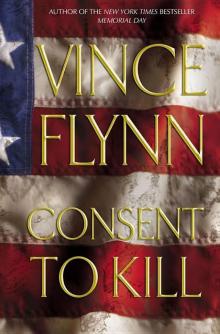 Consent to Kill:
Consent to Kill: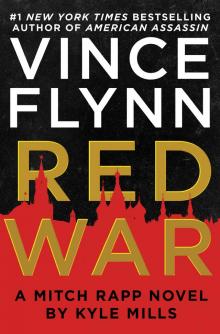 Red War
Red War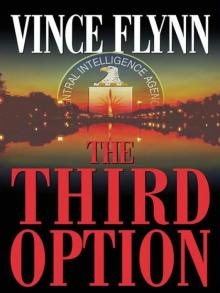 Mitch Rapp 02 - The Third Option
Mitch Rapp 02 - The Third Option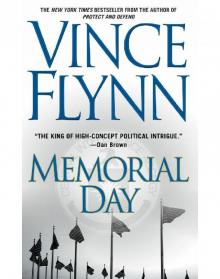 Mitch Rapp 05 - Memorial Day
Mitch Rapp 05 - Memorial Day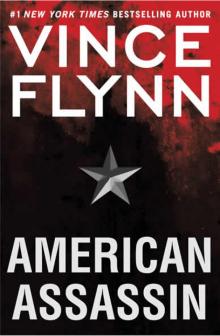 Mitch Rapp 11 - American Assassin
Mitch Rapp 11 - American Assassin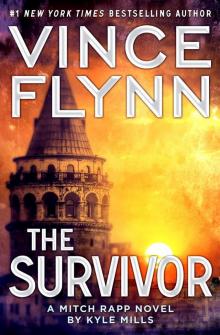 Mitch Rapp 14 - The Survivor
Mitch Rapp 14 - The Survivor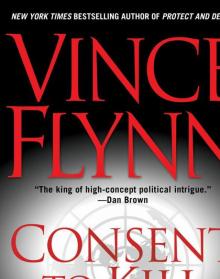 Mitch Rapp 06 - Consent to Kill
Mitch Rapp 06 - Consent to Kill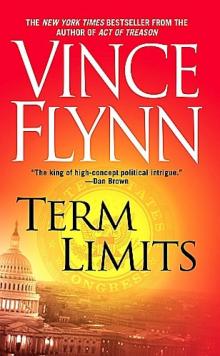 Term Limits mr-1
Term Limits mr-1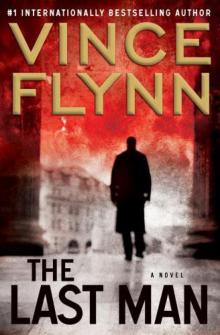 The Last Man mr-13
The Last Man mr-13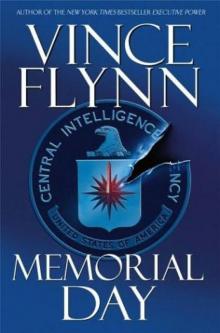 Memorial Day mr-5
Memorial Day mr-5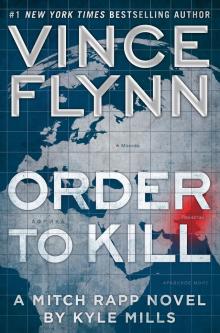 Order to Kill
Order to Kill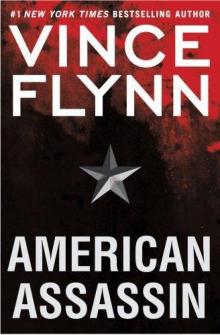 American Assassin: A Thriller
American Assassin: A Thriller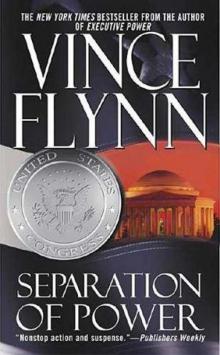 Separation of Power mr-3
Separation of Power mr-3